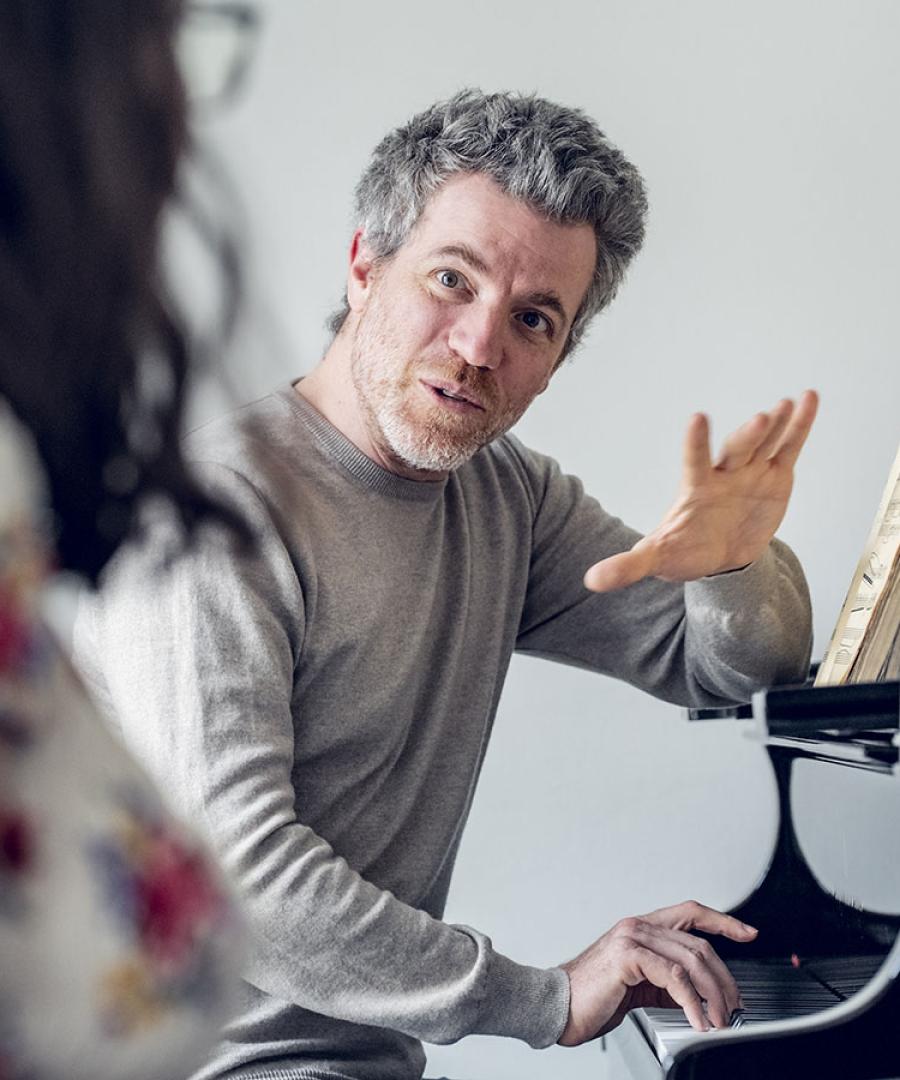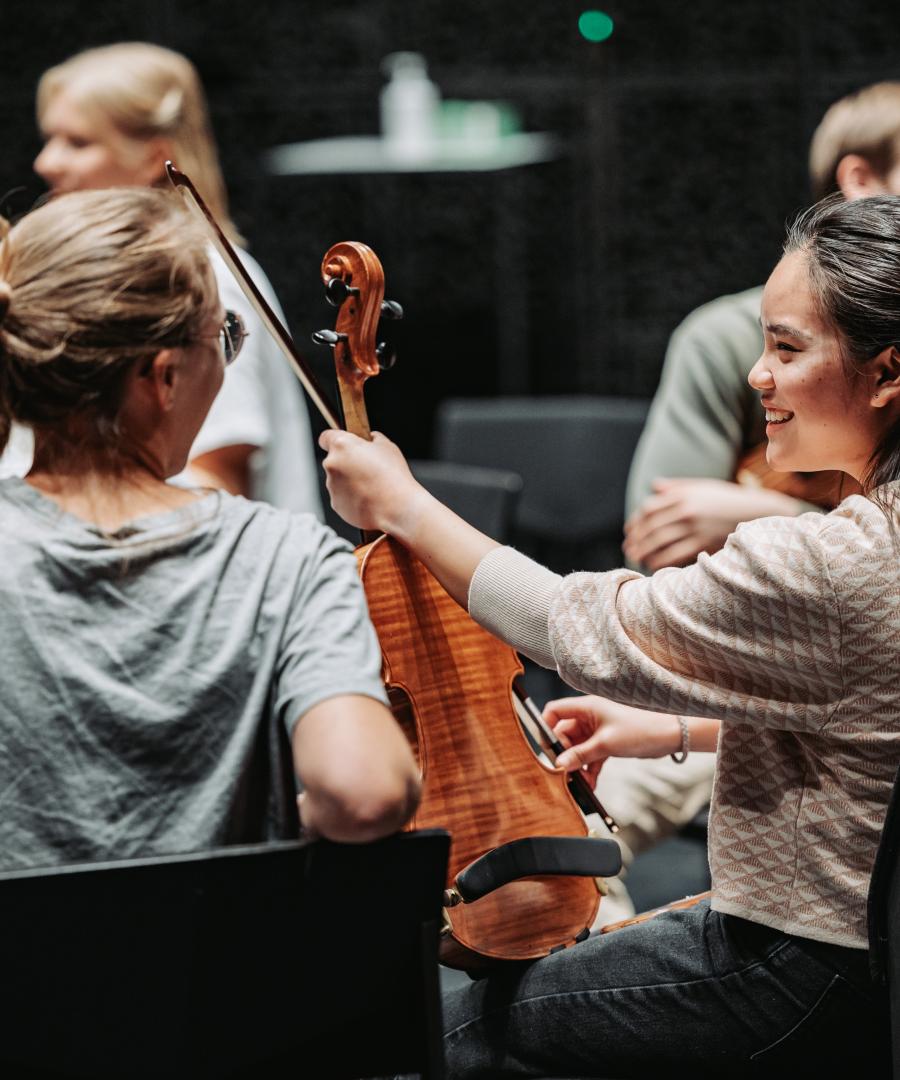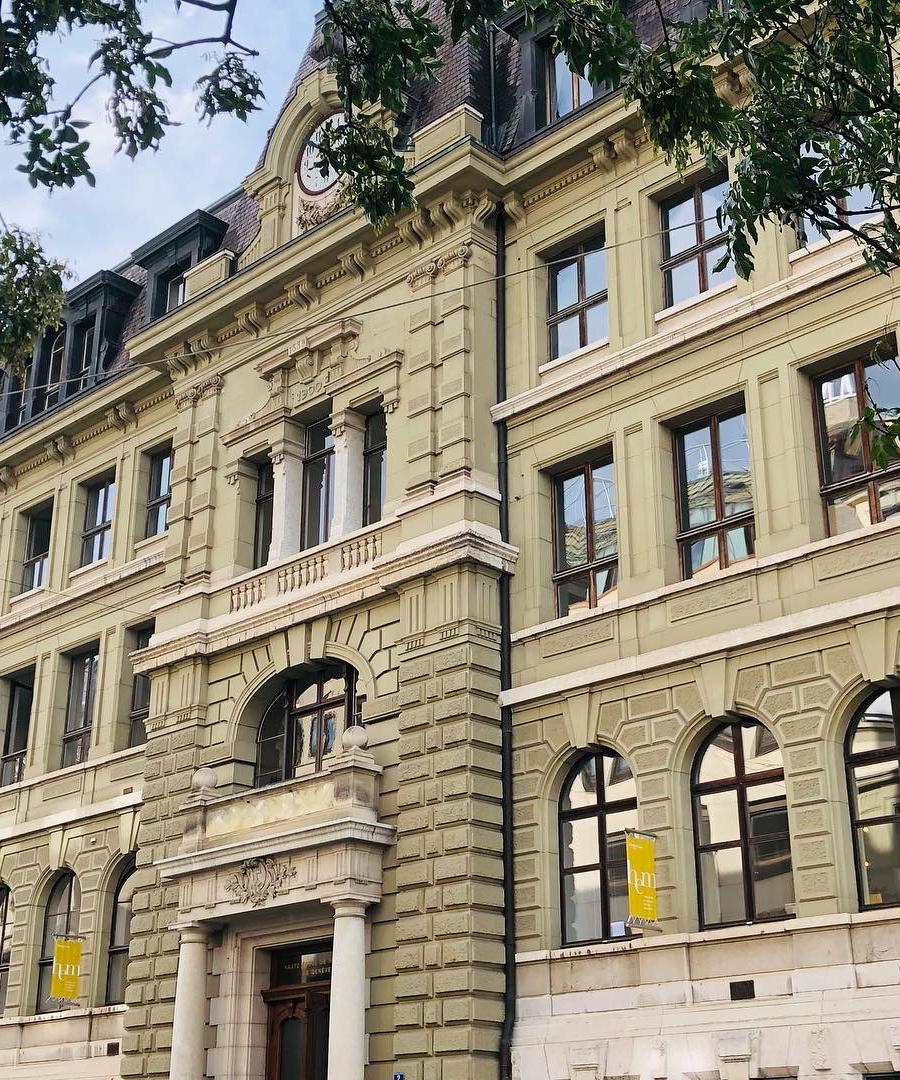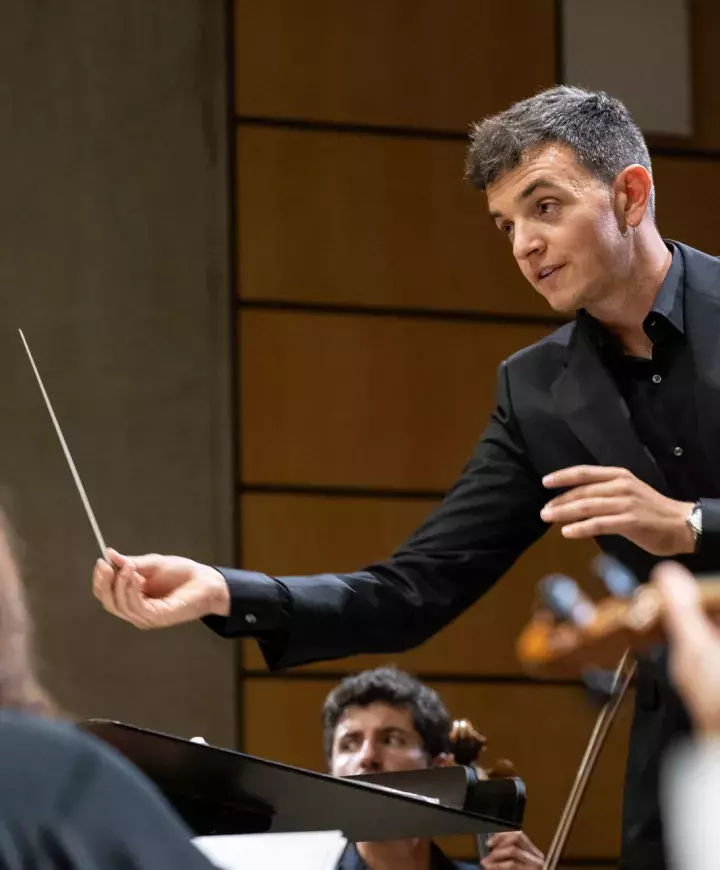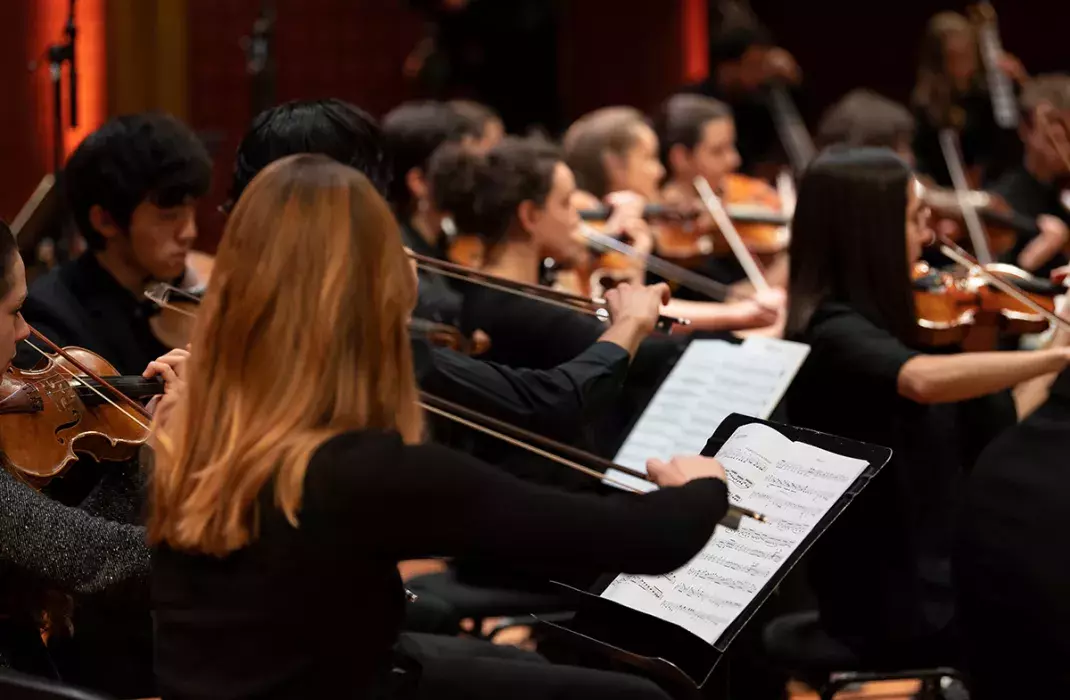- Studies
- Disciplines
- Research
- Events
- The school
Specialised Orchestral Conducting
This field offers a small number of students showing the abilities required training that leads to the conducting of professional orchestras (symphony orchestras, chamber orchestras, operas, specialist ensembles).
It requires the skills of orchestral instrumentalist and keyboardist, an enormous breadth of artistic culture (including in the opera and oratorio repertoires) and the ability to read scores with ease. Beyond these musical qualities, orchestra conductors must also acquire leadership and management qualities (including managing rehearsals).
Study plan
Abbreviations :
e = marked exam
p = validation by participation
rs = internship report
ce = co-assessment
cc = continuous assessment
SA = autumn semester
SP = spring semester
A1, A2, etc. = level of the course (first, second year, etc.)
S1, S2, etc. = level of the course (first, second semester, etc.)
